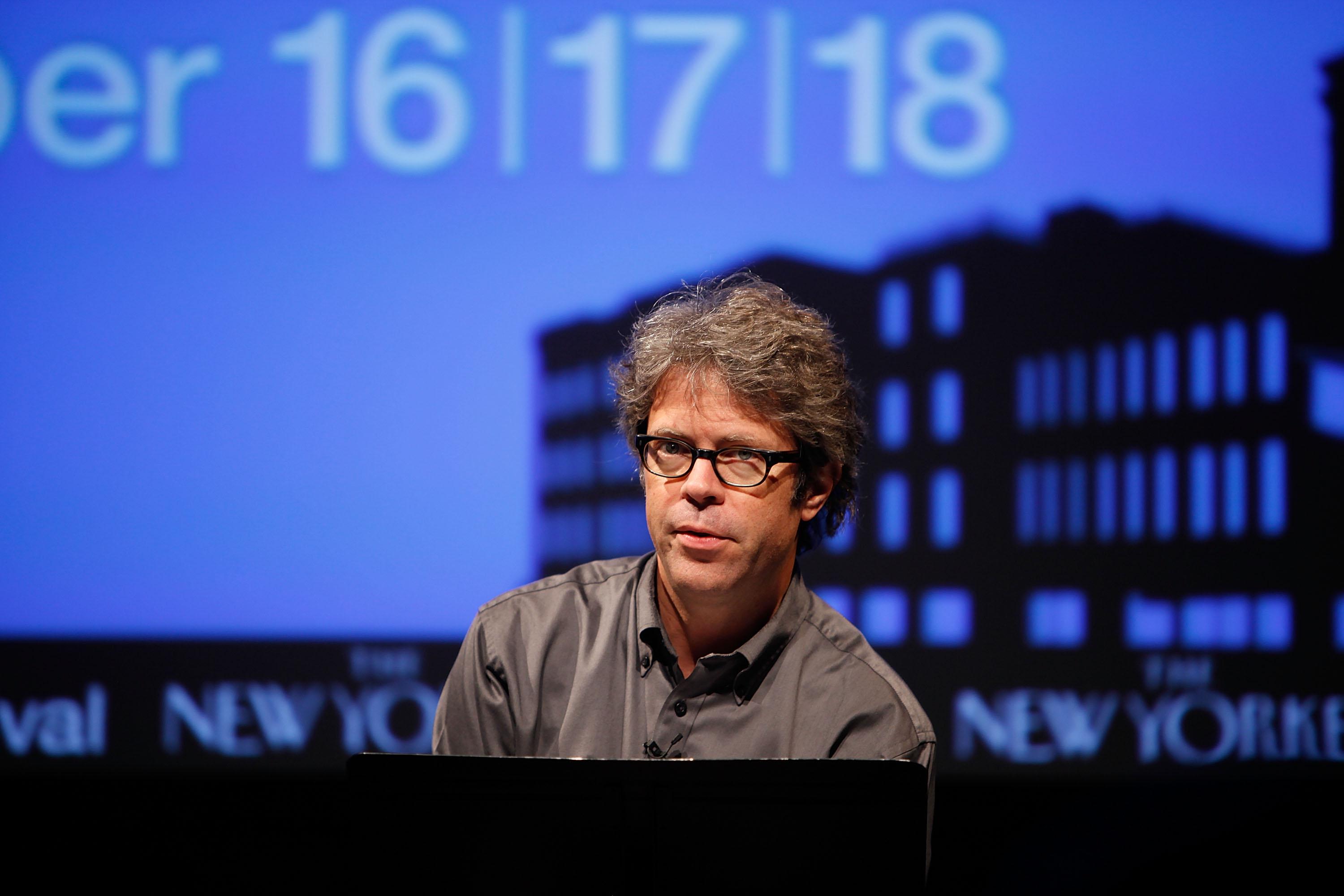In the Guardian last week, Jonathan Franzen published a 6,500-word essay about the Austrian satirist Karl Kraus, the societal downfall brought on by an Internet culture that is “pandering to people’s worst impulses,” and also this hot German girl who didn’t have sex with him in 1982.
Franzen blames the Internet for eradicating “the quiet and permanence of the printed word,” which “assured some kind of quality control,” in favor of an apocalyptic hellscape punctuated by “bogus” Amazon reviews and “Jennifer-Weinerish self-promotion.” Back in Franzen’s day, “TV was something you watched only during prime time, and people wrote letters and put them in the mail, and every magazine and newspaper had a robust books section, and venerable publishers made long-term investments in young writers, and New Criticism reigned in English departments.” He goes on: “It wasn’t necessarily a better world (we had bomb shelters and segregated swimming pools), but it was the only world I knew to try to find my place in as a writer.”
And yet despite his studied loyalty to actually writing shit down, Franzen’s tl;dr essay—an excerpt from his forthcoming book The Kraus Project, which will be published with quiet permanence on Oct. 1—is peppered with the same sort of navel-gazing insights that the whippersnappers shoot incessantly across social media these days. Mac or PC? Franzen prefers the Lenovo Ultrabook, he overshares. “I think it’s accurate to say that I knew nothing of anger until I was 22,” he writes in the tradition of a thousand Thought Catalog bloggers. Jeff Bezos “may not be the antichrist, but he surely looks like one of the four horsemen,” Franzen practically tweets. The essay—titled “What’s Wrong with the Modern World?”—is illustrated with a close-up of a young Franzen’s face framed by tragically hip glasses. What did they call them before selfies? Jacket photos?
And then there is the tale of the German chick, told to pinpoint exactly the moment Franzen became an angry person. “I’d come from Munich and was waiting for a train to Berlin, it was a dark grey German day, and I took a handful of German coins out of my pocket and started throwing them on the platform,” Franzen writes. “There was an element of anti-German hostility in this, because I’d recently had a horrible experience with a penny-pinching old German woman and it did me good to imagine other penny-pinching old German women bending down to pick the coins up, as I knew they would, and thereby aggravating their knee and hip pains. The way I hurled the coins, though, was more generally angry. I was angry at the world in a way I’d never been before. The proximate cause of my anger was my failure to have sex with an unbelievably pretty girl in Munich, except that it hadn’t actually been a failure, it had been a decision on my part.”
There’s an “element of anti-German hostility in this,” sure, but the more relevant portion of Franzen’s anger is directed at women. Literature’s preeminent dude-bro took out his frustrations at a girl he “decided” not to have sex with (isn’t that how it always happens!) by fantasizing about old women destroying their bodies as they scrounge after his discarded fortunes. Franzen writes that he learned to overcome his youthful anger when he became a novelist, and was moved to empathize with other humans in the service of great literature; “to imagine what it’s like to be somebody you are not” is the “mental work that fiction fundamentally requires,” he now understands.
But Franzen is less enthused about the prospect of other humans actually responding to his stories—or, God forbid, telling their own stories without the aid of Franzen’s refined literary filter. Since Franzen came into this world in 1959 and human communication promptly went to hell in a handbasket—by the way, does that make Jonathan Franzen one of the horsemen of his own apocalypse?—people who do not look like Jonathan Franzen have leveraged the explosion of literary outlets to publish their own writing, tell their own experiences, and gain voices in the conversation. (Jennifer Weiner has already filed her response to Franzen’s essay in The New Republic, in a piece entitled, “What Jonathan Franzen Misunderstands About Me.”) But Franzen fails to draw any connection between the segregated swimming pools of his youth and his own ability to “find my place” as a writer in the long tail of that old world. Franzen briefly acknowledges the diversity argument just to knock it down. He expresses disappointment with the literary magazine N+1, which he says “denigrates print magazines as terminally ‘male,’ celebrates the internet as ‘female,’ and somehow neglects to consider the internet’s accelerating pauperisation of freelance writers.”
If Franzen had published his wistful German train station anecdote today, the “penny-pinching old German woman” could tweet evidence of Franzen’s insufficient tip; the hot girl could tell the world how their interaction really went down in an xoJane IHTM. That doesn’t mean that writers today have lost the ability to seriously explore the human condition. It means that a much wider and diverse group of humans now has the power to inform privileged literary voices like Franzen about what the conditions are actually like on the ground.
